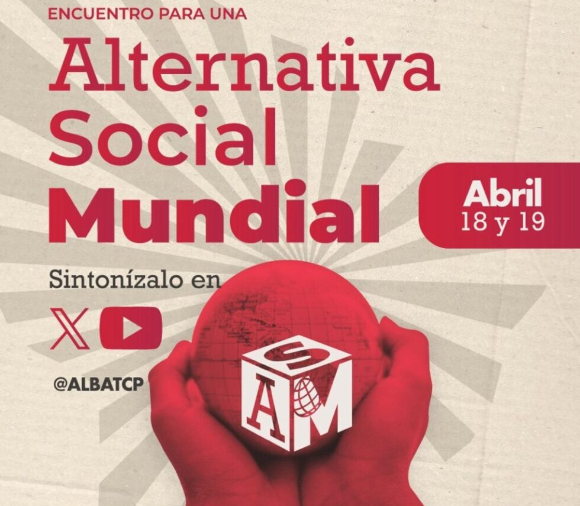
Caracas, April 18 (RHC)-- Representatives of countries that make up the Bolivarian Alliance for the Peoples of Our America-People's Trade Agreement (ALBA-TCP), social movements and intellectuals attended this Thursday in the Venezuelan capital, Caracas, at the beginning of the Meeting for a World Social Alternative.
The meeting is sponsored by ALBA-TCP and the Simon Bolivar Institute of Venezuela, and its debates, which will last until Friday, will contribute to the promotion of unity and the design of strategies to confront U.S. interventionism in Latin America and the Caribbean, at a time when the White House appeals to the threat of armed intervention, political pressures, propaganda and ideological warfare, and more frequently to unilateral coercive measures.
ALBA-TCP announced that the deliberations will be transmitted through its social networks. You can follow the Meeting for a World Social Alternative through the following space: Meeting for a World Social Alternativ
Previously, the executive secretary of the integration bloc, Jorge Arreaza, highlighted the importance of counteracting what he called "hyper-imperialism unleashed" through organized and mobilized peoples.
Among the intellectuals invited to the meeting are Abel Prieto (Cuba), Atilio Borón (Argentina), Rania Khalek (Lebanon-USA), Juan Carlos Monedero and Marta Martín (Spain), Carlos Rosero (Colombia), Tebogo Phadu (South Africa), Messilene Gorete (Brazil), Vijay Prashad (India), Irene León (Ecuador), Ramón Grosfoguel (Puerto Rico) and Alina Duarte (Mexico). A total of 500 people are expected to participate in the meeting.
Among the topics of analysis will be the dangers and threats to humanity, the decadent civilization, imperialism as an enemy of all peoples, the urgency of a common project of struggle, solidarity with Palestine, Cuba, Haiti, Venezuela, the Saharawi people and former Ecuadorian Vice President Jorge Glas.
The possibility of contributing initiatives to articulate a communication network that serves the peoples, emancipation and the construction of a social order more just and opposed to capitalism becomes relevant.

